- Home
- Michael Connelly
Blood Work (1998) Page 3
Blood Work (1998) Read online
Page 3
After hanging up the board, he leaned into the mirror to look at his eyes. Green flecked with gray, the corneas showing hairline cracks of red. He stepped back and pulled the shirt off. The mirror was small but he could still see the scar, whitish pink and thick, ugly. He did this often, appraised himself. It was because he couldn't get used to the way his body looked now and the way it had so fully betrayed him. Cardiomyopathy. Fox had told him it was a virus that could have been waiting in the walls of his heart for years, only to bloom by happenstance and to be nurtured by stress. The explanation meant little to him. It didn't ease the feeling that the man he had once been was gone now forever. He sometimes felt when he looked at himself he was looking at a stranger, someone beaten down and left fragile by life.
After pulling his shirt back on, he went into the forward berth. It was a triangular-shaped room that followed the shape of the bow. There was a double bunk on the port side and a bank of storage compartments to starboard. He had turned the lower berth into a desk and used the overhead berth for storage of cardboard boxes full of old bureau files. Marked on the side of these boxes were the names of the investigations. They said POET ,CODE ,ZODIAC ,FULL MOON and BREMMER . Two of the boxes were marked VARIOUS UNSUBS . McCaleb had copied most of his files before leaving the bureau. It was against policy but no one stopped him. The files in the boxes came from various cases, open and closed. Some filled whole cartons, some were thin enough to share space in the same boxes. He wasn't sure why he had copied everything. He hadn't opened any of the boxes since he had retired. But at various times he had thought he would write a book or maybe even continue his investigations of the open cases. Largely, though, he just liked the idea of having the files as a physical accounting or proof of what he had done with that part of his life.
McCaleb sat down at the desk and turned on the wall-mounted light. Momentarily, his eyes fell on the FBI badge he had carried for sixteen years. It was now encased in a Lucite block and hanging on the wall above the desk. Tacked to the wall next to it was a photo of a young girl with braces, smiling at the camera. It had been copied from a yearbook many years before. McCaleb frowned at the memory and looked away, his eyes falling to the desk clutter.
There was a handful of bills and receipts scattered on the desk, an accordion file full of medical records, a stack of manila files that were mostly empty, three fliers from competing dry-docking services and the Cabrillo Marina dockage rules book. His checkbook was open and ready to be put to use but he couldn't bring himself to wade into the mundane task of paying bills. Not now. He was restless but it was not because of a paucity of things on his mind. He couldn't stop thinking about the visit from Graciela Rivers and the sudden change it had put him through.
He sorted through the clutter on the desk until he found the newspaper clip that had brought the woman to his boat. He had read it the day it was published, cut it out and then tried to forget about it. But that had been impossible. The story had drawn a procession of victims to his boat. The mother whose teenage daughter's body was found mutilated on the beach down in Redondo; the parents whose son had been hanged in an apartment in West Hollywood. The young husband whose wife had gone clubbing on the Sunset Strip one night and had never come back. All of them zombies, left nearly catatonic by grief and the betrayal of their faith in a God who wouldn't allow such things to happen. McCaleb couldn't comfort them, he couldn't help them. He sent them on their way.
He had agreed to the newspaper interview only because he was in the reporter's debt. When he had been with the bureau, Keisha Russell had always been good to him. She was the kind of reporter who gave some and didn't always take. She had called him on the boat a month earlier to collect on that debt. She'd been assigned the story for the Times 's "Whatever Happened to . . ." column. Since a year earlier she had written a story about McCaleb's wait for a heart, she wanted to update it now that he had finally received the transplant. McCaleb wanted to decline the invitation, knowing it would disrupt the anonymous life he was now living, but Russell had reminded him of all the times she had helped him-either holding back details of an investigation or putting them into a story, depending on what McCaleb thought would be useful. McCaleb felt he had no choice. He always made good on his debts.
On the day the story was published, McCaleb had taken it as his official badge of has-been status. Usually, the column was reserved for updates on hack politicians who had disappeared from the local scene or people whose fifteen minutes of fame had long ago lapsed. Every now and then it featured a washed-up TV star who was selling real estate or had become a painter because it was his true creative calling.
He unfolded the clip now and reread it.
New Heart, New Start for Former FBI Agent By Keisha Russell TIMESSTAFF WRITER
It used to be that Terrell McCaleb's face was a routine fixture on the nightly newscasts of Los Angeles and his words always found space in the local newspapers. It was not a nice routine for him or the city.
An FBI agent, McCaleb was the bureau's point man in the investigations of the handful of serial killers that plagued Los Angeles and the West in the last decade.
A member of the Investigative Support Unit, McCaleb helped focus the investigations of the local police. Media-savvy and always quotable, he often took the spotlight-a move that sometimes rubbed the locals and his supervisors in Quantico, Va., the wrong way.
But it has been more than two years since he has made even a blip on the public radar screen. These days, McCaleb no longer carries a badge or a gun. He says he doesn't even own a standard-issue navy blue FBI suit anymore.
More often than not he wears old blue jeans and torn T-shirts and can be found restoring his 42-foot fishing boat, The Following Sea. McCaleb, who was born in Los Angeles and grew up in Avalon on nearby Catalina Island, currently lives on the boat in a San Pedro marina but plans eventually to moor the vessel in Avalon Harbor.
Recovering from heart transplant surgery, McCaleb says hunting serial killers and rapists is the furthest thing from his mind these days.
McCaleb, 46, says he gave his heart to the bureau-his doctors say severe stress triggered a virus that led to the near-fatal weakening of his original heart-but doesn't miss it.
"When you go through something like this, it changes you more than just physically," he said in an interview last week. "It puts things in perspective. Those FBI days seem like a long time ago. I've got a new start now. I don't know exactly what I'm going to do with it but I'm not too worried. I'll find something."
McCaleb almost didn't get the new start. Because he has a blood type found in less than one percent of the population, his wait for a suitable heart lasted almost two years.
"He really strung it out," said Dr. Bonnie Fox, the surgeon who performed the transplant. "We probably would have lost him or he would have become too weak to undergo the surgery if we'd had to wait much longer."
McCaleb is out of the hospital and already physically active after only eight weeks. He says that only on occasion does he think about the adrenaline-pumping investigations that once occupied him.
The former agent's case list reads like a Who's Who of a macabre walk of fame. Among the cases he worked locally were the Nightstalker and Poet investigations and he took key roles in the hunts for the Code Killer, Sunset Strip Strangler and Luther Hatch, who became known after his arrest as the Cemetery Man because of his visits to the graves of his victims.
McCaleb had been a profiler in the unit's Quantico base for several years. He specialized in West Coast cases and was flown to Los Angeles often to assist local police in investigations. Finally, the unit's supervisors decided to create a satellite post here and McCaleb was returned to his native Los Angeles to work out of the FBI field office in Westwood. The move put him closer to many of the investigations in which the FBI was called upon for assistance.
Not all of the investigations were successful and eventually the stress took its toll. McCaleb suffered a heart attack while working late one ev
ening in the local field office. He was found by a night janitor, who was credited with saving the agent's life. Doctors determined McCaleb suffered from advanced cardiomyopathy-a weakening of the heart's muscles-and placed him on a transplant list. As he waited, he was given a disability retirement by the bureau.
He traded his bureau pager for a hospital pager and on Feb. 9 it sounded; a heart from a donor with matching blood was available. After six hours of surgery at Cedars-Sinai Medical Center, the donor's heart was beating in McCaleb's chest.
McCaleb is unsure what he'll do with his new life-other than go fishing. He has had offers from former agents and police detectives to join them as a private investigator or security consultant. But his focus so far has been on restoring The Following Sea, a twenty-year-old sport-fishing boat he inherited from his father. The boat was left to deteriorate for six years but now has McCaleb's full-time attention.
"At the moment I'm content to take things a little at a time," he said. "I'm not worried too much about what's ahead."
His regrets are few but like all retired investigators and fishermen, McCaleb laments the ones that got away.
"I wish I had solved all the cases," he said. "I hated it when somebody got away. I still do."
For a moment McCaleb studied the photo they had used with the story. It was an old head shot they had used many times before during his days with the bureau. His eyes stared boldly into the camera.
When Keisha Russell had come around to do the story on him, she had come with a photographer. But McCaleb wouldn't let them take a fresh shot. He told them to use one of the old photos. He didn't want anybody to see the way he looked now.
Not that anyone could tell much, unless he had his shirt off. He was about thirty pounds lighter but that wasn't what he wanted to hide. It was the eyes. He had lost that look-the eyes as piercingly hard as bullets. He didn't want anyone to know he had lost that.
He folded the newspaper clip and put it aside. He tapped his fingers on the desk for a few seconds while brooding over things and then looked at the steel paper spike next to the phone. The number Graciela Rivers had given him was scratched in pencil on the scrap of paper that sat at the top of the stack of notes punctured by the spike.
When he was an agent, he had carried with him a bottomless reservoir of rage for the men he hunted. He had seen firsthand what they had done and he wanted them to pay for the horrible manifestations of their fantasies. Blood debts had to be paid in blood. That was why in the bureau's serial killer unit the agents called what they did "blood work." There was no other way to describe it. And so it worked on him, cut at him, every time one didn't pay. Every time one got away.
What happened to Gloria Torres now cut at him. He was alive because she had been taken away by evil. Graciela had told him the story. Gloria had died for no reason other than that she was in the way of somebody and a cash register. It was a simple, stupid and ghastly reason to die. It somehow put McCaleb in debt. To her and her son, to Graciela, even to himself.
He picked up the phone and dialed the number scratched on the paper. It was late but he didn't want to wait and he didn't think she would want him to. She answered in a whisper after only one ring.
"Miss Rivers?"
"Yes."
"It's Terry McCaleb. You came by my-"
"Yes."
"Is this a bad time?"
"No."
"Well, listen, I wanted to tell you that I, uh, have been thinking about things and I promised you I'd call you back no matter what I decided."
"Yes."
There was a hopeful tone in just her one word. It touched his heart.
"Well, this is what I think. My, um, my skills, I guess you'd call them, they're not really suited to this kind of crime. From what you described about your sister, we're talking about a random occurrence with a financial motive. A robbery. So it's different from, you know, the kind of cases I worked for the bureau, the serial cases."
"I understand."
The hopefulness was bleeding out.
"No, I'm not saying I'm not going to-you know, that I'm not interested. I'm calling because I am going to go see the police tomorrow and ask about this. But-"
"Thank you."
"-I don't know how successful I'm going to be. That's what I'm trying to say. I don't want to get your hopes up, is what I'm saying. These things . . . I don't know."
"I understand. Thank you for just being willing to do this. Nobody-"
"Well, I'll take a look at things," he said, cutting her off. He didn't want her thanking him too much. "I don't know what kind of help or cooperation I'll get from the L.A. police but I'll do what I can. I owe your sister at least that much. To try."
She was silent and he told her he needed to get some additional information about her sister as well as the names of the LAPD detectives on the case. They talked for about ten minutes and when he had all of the information he needed written down in a small notebook, an uneasy silence played across the telephone line.
"Well," he finally said, "I guess that's it, then. I'll call you if I have any other questions or if anything else comes up."
"Thank you again."
"Something tells me I should be thanking you. I'm glad I'll be able to do this. I just hope it helps."
"Oh, it will. You've got her heart. She'll guide you."
"Yes," he said hesitantly, not really understanding what she meant or why he was agreeing. "I'll call you when I can."
He hung up and stared at the phone for a few moments, thinking about her last line. Then again he unfolded the newspaper clip with his picture. He studied the eyes for a long time.
Finally, he folded the newspaper clip closed and hid it under some of the paperwork on the desk. He looked up at the girl with the braces and after a few moments nodded. Then he turned off the light.
4
WHEN McCALEB HAD BEEN with the bureau, the agents he worked with called this part the "hard tango." It was the finesse moves they had to make with the locals. It was an ego thing and a territorial thing. One dog doesn't piss in another dog's yard. Not without permission.
There was not a single homicide cop working who did not have a healthy ego. It was an absolute job requirement. To do the job, you had to know in your heart that you were up to the task and that you were better, smarter, stronger, meaner, more skilled and more patient than your adversary. You had to flat-out know that you were going to win. And if you had any doubts about that, then you had to back off and work burglaries or take a patrol shift or do something else.
The problem was that homicide egos were often unchecked to the point that some detectives extended the view they had of their adversaries to those who wanted to help them-fellow investigators, especially FBI agents. No homicide cop on a stalled-out case wants to be told that maybe someone else-particularly a fed from Quantico-might be able to help or could do it better. It had been McCaleb's experience that when a cop finally gave up and put a case into cold storage, he secretly didn't want anyone taking it out and proving him wrong by solving it. As an FBI agent McCaleb was almost never asked into a case or called for advice by the lead detective. It was always the supervisor's idea. The supervisor didn't care about egos or hurt feelings. The supervisor cared about clearing cases and improving statistical reports. And so the bureau would be called and McCaleb would come in and have to do the dance with the lead detective. Sometimes it was the smooth dance of coordinated partners. More often it was the hard tango. Toes got stepped on, egos got bruised. On more than one occasion McCaleb suspected that a detective he was working with was holding back information or was secretly pleased when McCaleb was unsuccessful in helping identify a suspect or bringing closure to a case. It was part of the petty territorial bullshit of the law enforcement world. Sometimes consideration of the victim or the victim's family wasn't even on the plate. It was dessert. And sometimes there was no dessert.
McCaleb was pretty sure he was facing a hard tango with the LAPD. It didn't matter that th
ey had apparently hit the wall with the Gloria Torres investigation and could use the help. It was territorial. And to make matters worse, he wasn't even with the FBI anymore. He was going in naked, without a badge. All he had with him when he arrived at seven-thirty on Tuesday morning at the West Valley Division was his leather bag and a box of doughnuts. He was going to be dancing the hard tango without music.
McCaleb had chosen his arrival time because he knew that most detectives started early so they could get done early. It was the time when he had the best chance of catching the two assigned to the Gloria Torres case in their office. Graciela had given him their names. Arrango and Walters. McCaleb didn't know them, but he had met their commanding officer, Lieutenant Dan Buskirk, a few years earlier on the Code Killer case. But it was a superficial relationship. McCaleb didn't know what Buskirk thought about him. He decided, though, that it would be best to follow protocol and start with Buskirk and then, hopefully, get to Arrango and Walters.

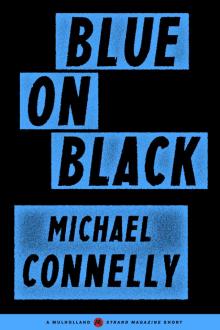 Blue on Black
Blue on Black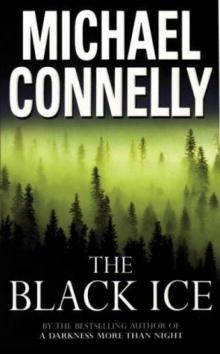 The Black Ice (1993)
The Black Ice (1993) Crime Beat: A Decade of Covering Cops and Killers
Crime Beat: A Decade of Covering Cops and Killers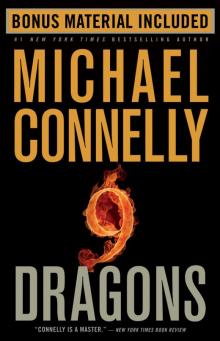 Nine Dragons
Nine Dragons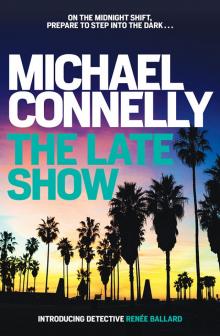 The Late Show
The Late Show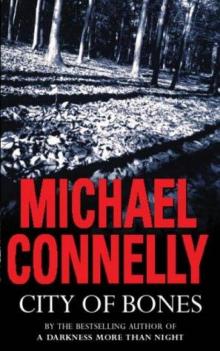 City of Bones
City of Bones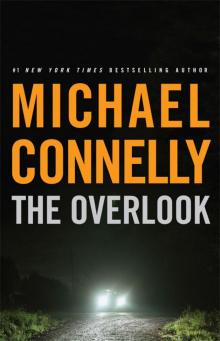 The Overlook
The Overlook The Crossing
The Crossing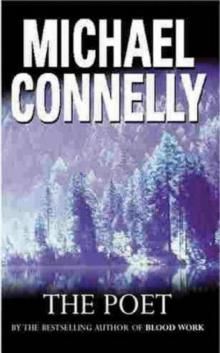 The Poet (1995)
The Poet (1995) Murder Worthy
Murder Worthy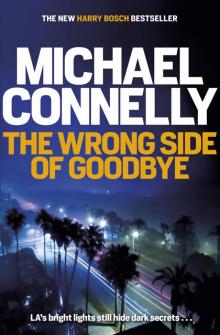 The Wrong Side of Goodbye
The Wrong Side of Goodbye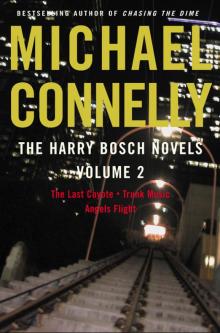 Harry Bosch Novels, The: Volume 2
Harry Bosch Novels, The: Volume 2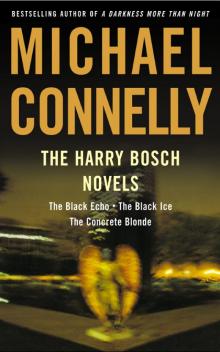 The Harry Bosch Novels
The Harry Bosch Novels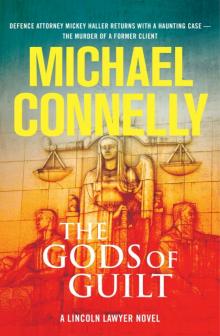 The Gods of Guilt
The Gods of Guilt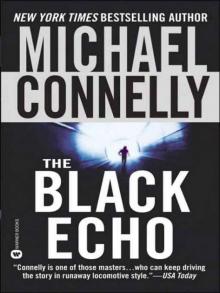 The Black Echo
The Black Echo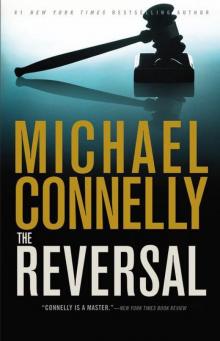 The Reversal
The Reversal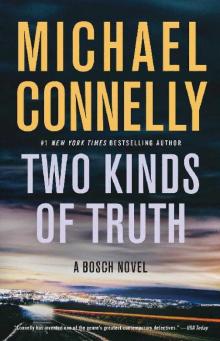 Two Kinds of Truth
Two Kinds of Truth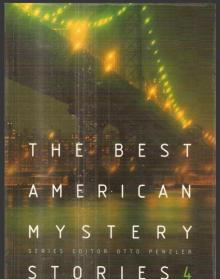 The Best American Mystery Stories 2003
The Best American Mystery Stories 2003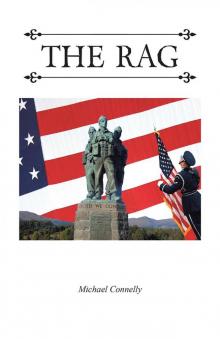 The Rag
The Rag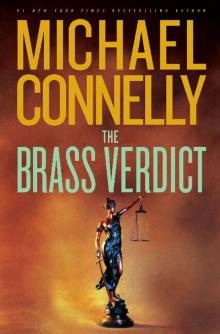 The Brass Verdict
The Brass Verdict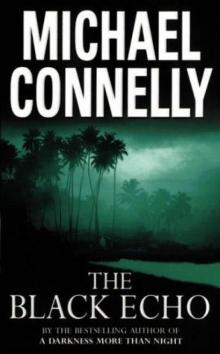 The Black Echo (1992)
The Black Echo (1992)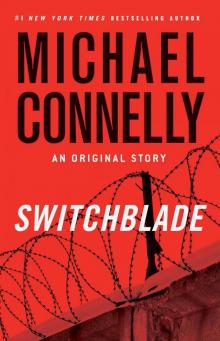 Switchblade
Switchblade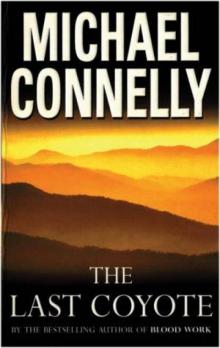 The Last Coyote
The Last Coyote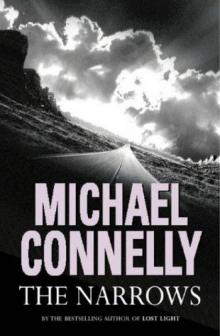 The Narrows
The Narrows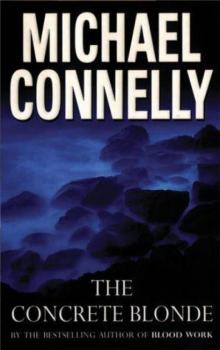 The Concrete Blonde (1994)
The Concrete Blonde (1994)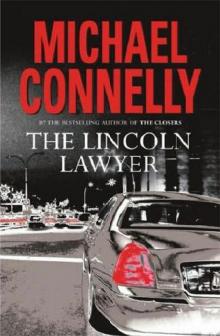 THE LINCOLN LAWYER (2005)
THE LINCOLN LAWYER (2005)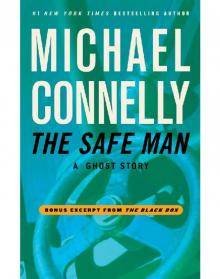 The Safe Man: A Ghost Story
The Safe Man: A Ghost Story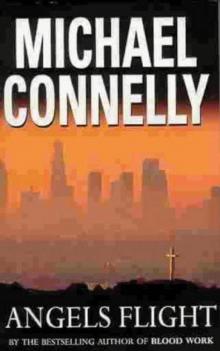 Angels Flight (1998)
Angels Flight (1998) Void Moon
Void Moon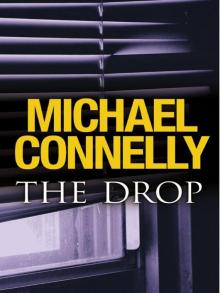 The Drop
The Drop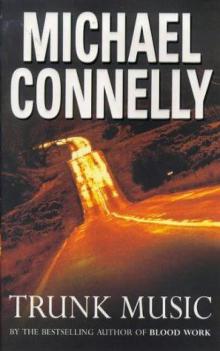 Trunk Music
Trunk Music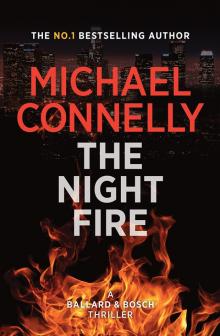 The Night Fire
The Night Fire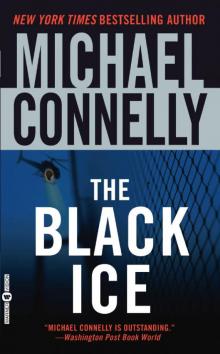 The Black Ice
The Black Ice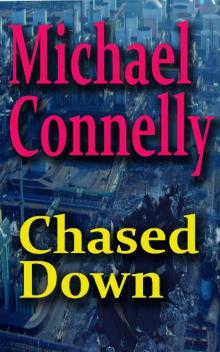 Chased Down
Chased Down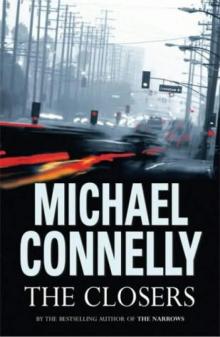 The Closers
The Closers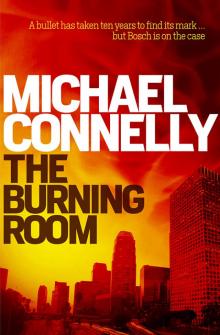 The Burning Room
The Burning Room Angels Flight
Angels Flight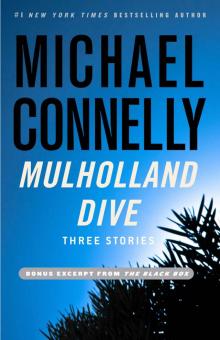 SSC (2012) Mulholland Drive
SSC (2012) Mulholland Drive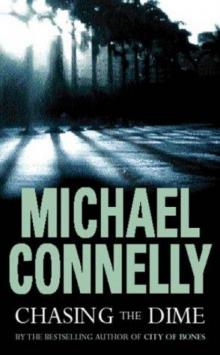 Chasing the Dime
Chasing the Dime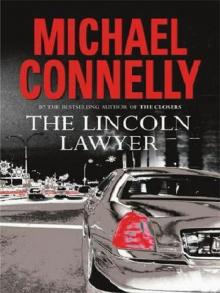 The Lincoln Lawyer
The Lincoln Lawyer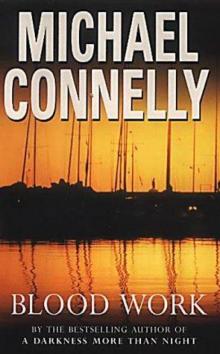 Blood Work (1998)
Blood Work (1998)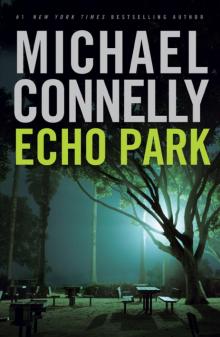 Echo Park
Echo Park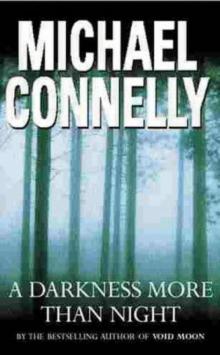 A Darkness More Than Night
A Darkness More Than Night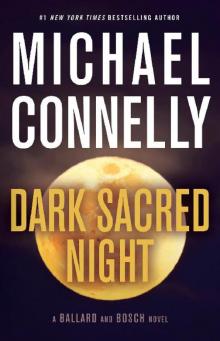 Dark Sacred Night - Ballard and Bosch #1;Renée Ballard #2
Dark Sacred Night - Ballard and Bosch #1;Renée Ballard #2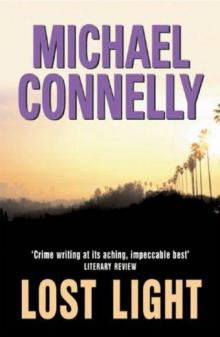 Lost Light
Lost Light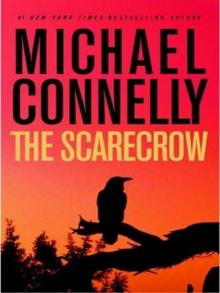 The Scarecrow
The Scarecrow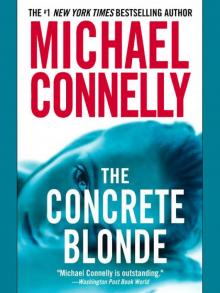 The Concrete Blonde
The Concrete Blonde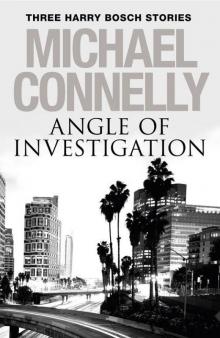 Angle of Investigation
Angle of Investigation Suicide Run: Three Harry Bosch Stories
Suicide Run: Three Harry Bosch Stories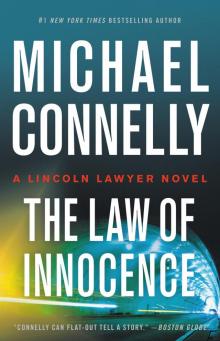 The Law of Innocence
The Law of Innocence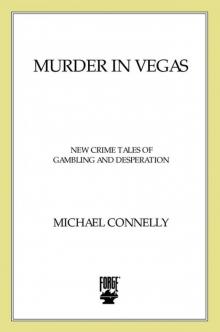 Murder in Vegas: New Crime Tales of Gambling and Desperation
Murder in Vegas: New Crime Tales of Gambling and Desperation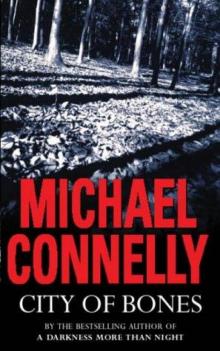 City Of Bones (2002)
City Of Bones (2002)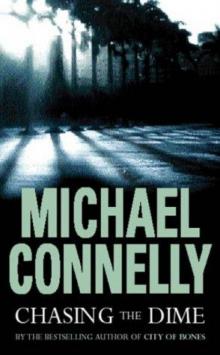 Chasing the Dime (2002)
Chasing the Dime (2002)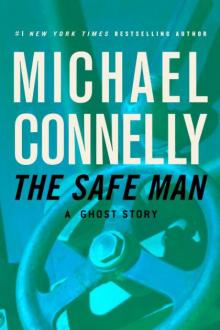 The Safe Man
The Safe Man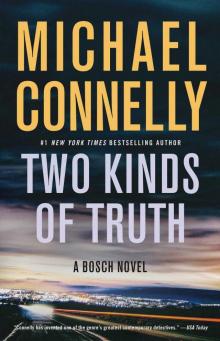 Two Kinds of Truth (A Harry Bosch Novel)
Two Kinds of Truth (A Harry Bosch Novel)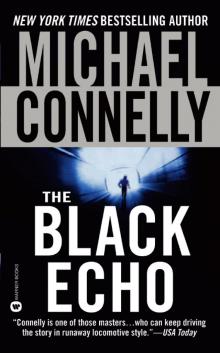 Harry Bosch 01 - The Black Echo
Harry Bosch 01 - The Black Echo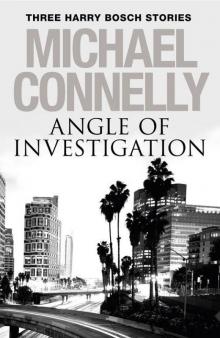 Angle of Investigation: Three Harry Bosch Short Stories
Angle of Investigation: Three Harry Bosch Short Stories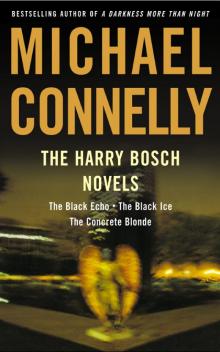 The Harry Bosch Novels Box Set 1
The Harry Bosch Novels Box Set 1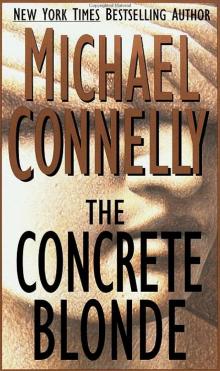 The Concrete Blonde hb-3
The Concrete Blonde hb-3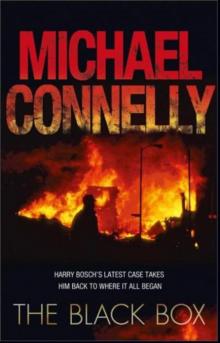 The Black Box hb-18
The Black Box hb-18 Short Stories
Short Stories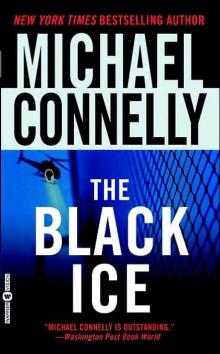 The Black Ice hb-2
The Black Ice hb-2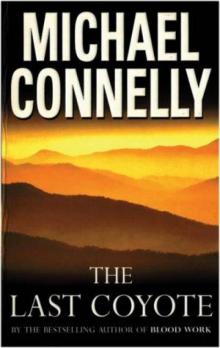 The Last Coyote (1995)
The Last Coyote (1995)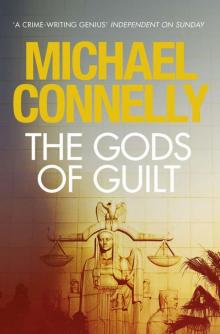 The Gods of Guilt mh-5
The Gods of Guilt mh-5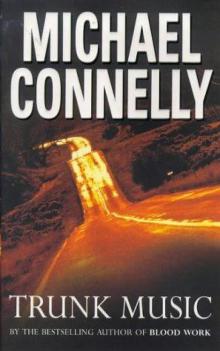 Trunk Music (1996)
Trunk Music (1996)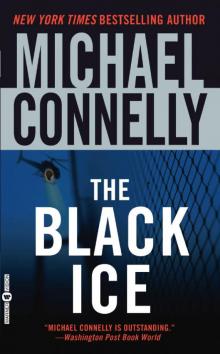 Harry Bosch 02 - The Black Ice
Harry Bosch 02 - The Black Ice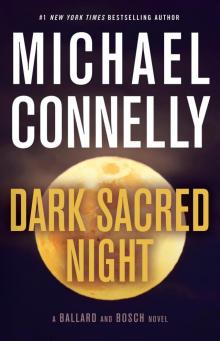 Dark Sacred Night
Dark Sacred Night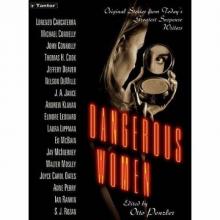 Cielo Azul
Cielo Azul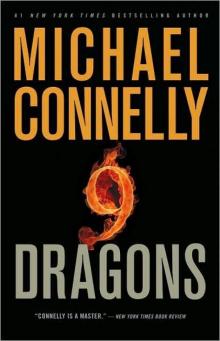 9 Dragons
9 Dragons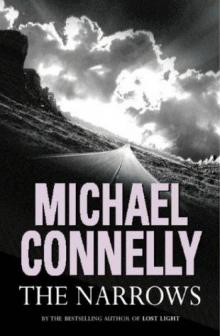 The Narrows (2004)
The Narrows (2004)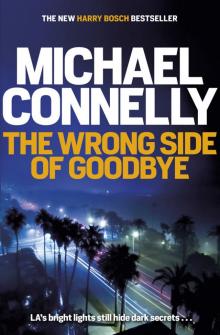 The Wrong Side of Goodbye (Harry Bosch Series)
The Wrong Side of Goodbye (Harry Bosch Series)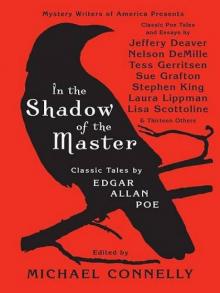 In The Shadow Of The Master: Classic Tales by Edgar Allan Poe
In The Shadow Of The Master: Classic Tales by Edgar Allan Poe Void Moon (1999)
Void Moon (1999)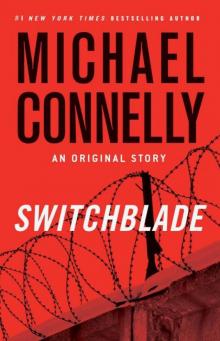 Switchblade: An Original Story (harry bosch)
Switchblade: An Original Story (harry bosch)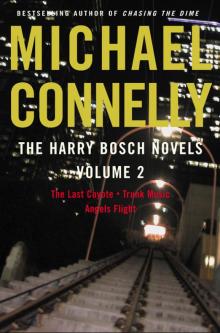 The Harry Bosch Novels, Volume 2
The Harry Bosch Novels, Volume 2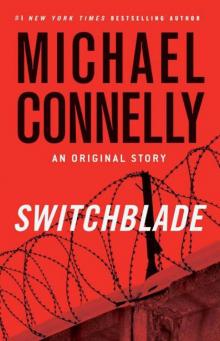 Switchblade: An Original Story
Switchblade: An Original Story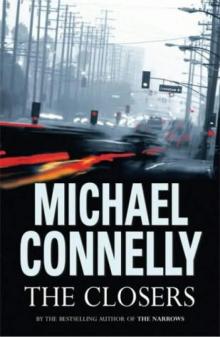 The Closers (2005)
The Closers (2005) Crime Beat
Crime Beat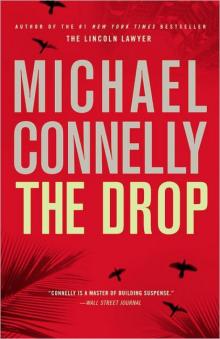 The Drop hb-17
The Drop hb-17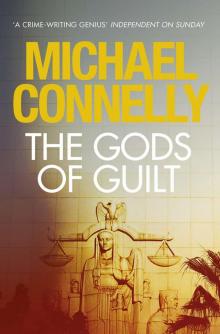 The Gods of Guilt (Mickey Haller 5)
The Gods of Guilt (Mickey Haller 5)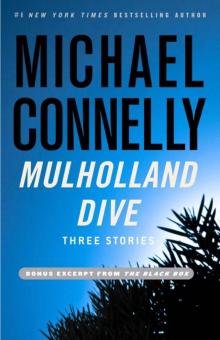 Mulholland Dive: Three Stories
Mulholland Dive: Three Stories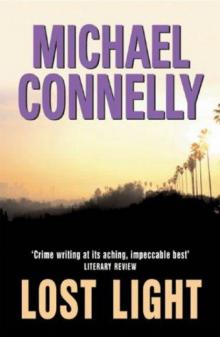 Lost Light (2003)
Lost Light (2003)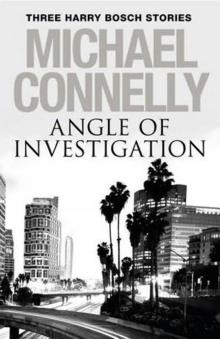 Angle of Investigation: Three Harry Bosch Stories
Angle of Investigation: Three Harry Bosch Stories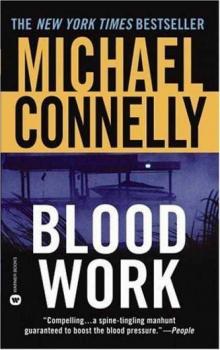 Blood Work
Blood Work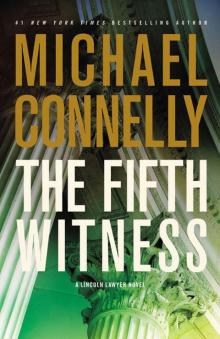 The Fifth Witness: A Novel
The Fifth Witness: A Novel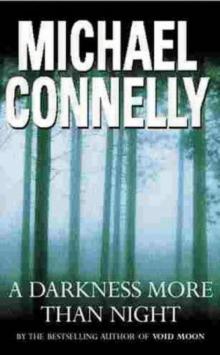 A Darkness More Than Night (2000)
A Darkness More Than Night (2000)